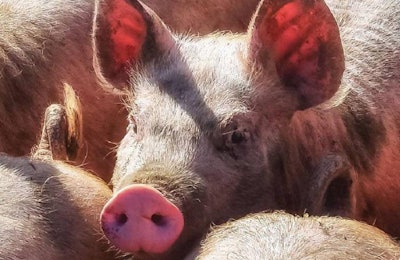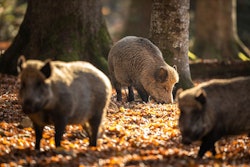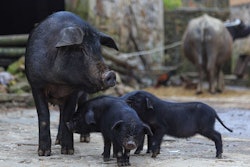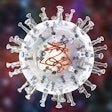
One of the cases was in the east of the country in Brandenburg, where there have been ongoing cases in wild boar; the other outbreak is the first to be confirmed in the northwestern state of Lower Saxony.
On the first day of July, the cause of death of six pigs on a farm in the German state of Lower Saxony (Niedersachsen) was identified as African swine fever (ASF).
This is a significant development in the spread of the disease in the country, which began in the east in September 2020. Not only does it bring the number of farms affected to seven, but also the states affected to five — and a jump to the most northwestern state of Germany.
On July 2, national veterinary agency, the Friedrich-Loeffler Institute (FLI) confirmed the presence of the ASF virus in a piglet from the farm. With a herd numbering 1,786 pigs, the premises in Lower Saxony is in the district of Emsland. It is located in the municipality of Emsbüren, which borders the Netherlands.
As yet, the source of the infection has not been identified, according to the state’s agriculture ministry. It reports that the affected farm’s 280 sows and around 1,500 piglets were scheduled for culling on July 3.
Within a 10-kilometer radius of the outbreak, there are almost 300 farms with a total of around 195,000 pigs. Extending into a neighboring district, the exclusion zone prohibits the movement of pigs. However, through traffic will be permitted, with additional checks made on vehicles.
“Our most important goal now is to prevent further spread so that we don’t experience a wildfire,” said Minister Barbara Otte-Kinast. “Make sure that biosecurity is maintained on your farm,” she urged the region’s pig producers.
Netherlands on ASF alert
The Dutch agriculture ministry reports that the ASF outbreak in Germany’s Lower Saxony is just 15 kilometers from the international border with the province of Overijssel.
While the surveillance and protection zones around the German outbreak do not extend into Dutch territory, the ministry is warning the pig farming sector to be on high alert. This includes compliance with veterinary regulations and biosecurity measures. In particular, a second cleaning and disinfection of vehicles transporting pigs between Germany and the Netherlands is now mandatory.
The Dutch food safety authority, NVWA, is making a risk assessment of these cross-border movements.
Already in place for some time has been a protocol for reporting and ASF testing of all wild boar found dead in the Netherlands.
Fourth farm outbreak in Brandenburg state
As well as the ASF spread to Lower Saxony, Germany has also registered a new farm outbreak in the eastern state of Brandenburg.
Affected was a herd of 1,300 pigs at a commercial premises in the district of Uckermark, according to the World Organisation for Animal Health. This brings to four the number of outbreaks in domestic swine in Brandenburg. FLI confirmed the presence of the ASF virus in a fattening pig at the location.
Brandenburg’s agriculture ministry reports that all the animals at the farm were fattening pigs.
Culling of the herd has been carried out, according to Minister Ursula Nonnenmacher, and an epidemiological investigation is underway. She urged all pig keepers to tighten biosecurity around their animals.
In September 2020, Germany confirmed its first ever cases of ASF. Since then, outbreaks have occurred in the states of Brandenburg, Saxony and Mecklenburg-West Pomerania. In the east of the country, each of these borders Poland. And in May of this year, the virus appeared to jump to cause the first cases in Baden-Wurttemberg. In this southwestern state of Germany, the infected animals belonged to a small backyard herd.
As of July 1, FLI confirmed 4,044 cases of ASF among German wild boar. Furthermore, it had recorded five outbreaks among domestic pigs. Two latest outbreaks bring this latter total to seven, directly involving 7,474 pigs.
View our continuing coverage of the global African swine fever situation.
















